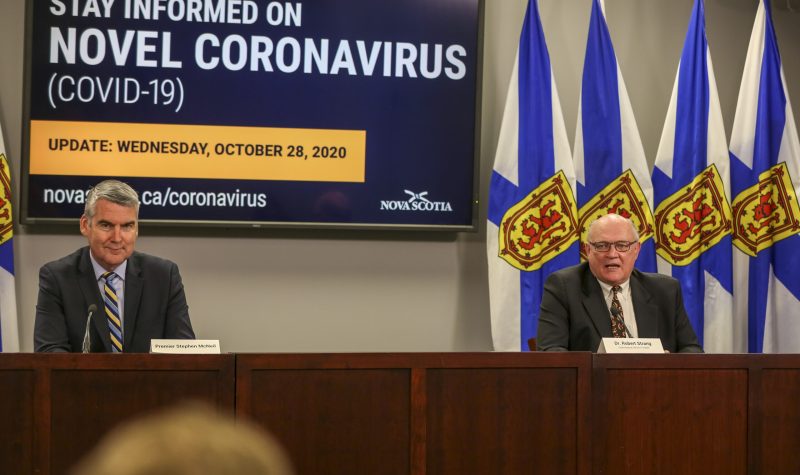Nova Scotians can now book their COVID-19 tests online.
Premier Stephen McNeil and Nova Scotia's chief medical officer of health Dr. Robert Strang, made the announcement at Wednesday’s COVID-19 update.
Previously, after completing an online assessment, anyone needing a test would have to call and leave a message with a scheduler then wait for a call back to book an appointment.
Dr. Strang said the new system streamlines that process.
“Moving it to online as part of this bigger project, like everything else, it just makes it faster. You can go in there, you don’t have to wait to get a call back. You don’t have to wait online for somebody. You can just make your own appointment. It’s much faster and efficient,” said Strang.
Anyone getting tested in the Central Zone or at the IWK Health Centre will have access to online booking immediately. People living in the Northern, Western which includes Queens County) and Eastern Zones can expect to have access to the new system by the second week of November.
In the two weeks since the last COVID-19 update on October 14, the province has had 10 new positive cases of the coronavirus. Nine of those were related to travel outside the Atlantic provinces and one was a close contact with one of the travellers.
Currently there are five active cases of COVID-19 in Nova Scotia and to date, the province has had 1,102 positive cases and 65 deaths.
Following up on Tuesday’s announcement from the province that international students will be permitted to return to post-secondary and language schools, Dr. Strang said the schools must make those students aware of the travel and quarantine restrictions before they set foot on a plane for Canada.
“Once they get here they are required to self-isolate for 14 days and the institutions must have a detailed protocol in place to support those students all the way from getting them from the airport to either a hotel or another living arrangement and then to monitor and support them in that 14 day quarantine,” said Strang.
Unlike when university students arrived in the fall, the international students will not need to undergo a mandatory three COVID-19 tests during their two-week isolation.
Dr. Strang said because the number of international students is much smaller and they will be arriving over a longer period of time the risk is far less than the thousands of students arriving at one time in September.
“We didn’t feel that it was necessary to supplement quarantining with testing,” said Strang. “The most important thing and what minimizes the risk of any transmission, is adherence to the quarantine.”
Dr. Strang said public health officials, working alongside the Department of Education and Early Childhood Development will allow private school from grades kindergarten to 12 to bring in international students under the same guidelines.
However, he did not say when or if international students would be permitted to return to public schools this year.
Reported by Ed Halverson
E-mail: edhalversonnews@gmail.com
Twitter: @edwardhalverson


